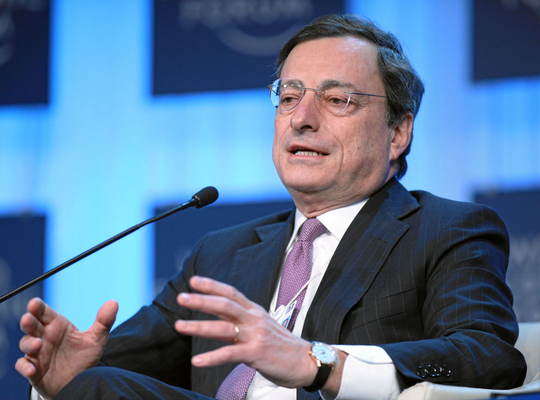You are here
OECD denounces ‘free money-policy’

Big news from the international economic world: the OECD The Organisation for Economic Cooperation and Development (OECD), established in 1961 as a result of the Marshall Plan, is a cooperation agreement between 34 countries in order to study and coordinate social and economic policy. The member countries try to solve their problems jointly and to mutually align their international policy. The organisation also collects statistical information to make comparative analyses. These OECD analyses are a valuable basis for the N-VA to test policy against itself or even to give shape to it. OECD finally acknowledges that Chairman of the European Central Bank (ECB), Mario Draghi’s ultra-flexible monetary policy has failed. European Parliament Member Sander Loones has been emphasising the deleterious side effects of that policy, especially on savers, for months now. He echoes the criticism of the OECD today and calls on the ECB to put a stop to this reckless policy.
Today the ECB not only buys government Bonds A loan to a company or a government, which is paid back with interest. In contrast to shares, most bonds have a fixed duration and a fixed interest, which is usually paid out on an annual basis. Therefore, as a general rule, bonds have less risk than shares. bonds , but also company ones. Several renowned economists have already voice heavy criticism on the topic. Sander Loones fully supports their criticism: “Draghi’s policy makes it impossible to safely invest people’s pension money; companies are misled into making investments with no return, and SMEs are seriously disadvantaged compared to big companies.”
Normalising the monetary policy
Now it turns out that the OECD has also lost its faith in the policy of the most important central banks. The authors of the OECD Business and Finance Outlook for 2016 note that the historically low interest and the trillions of cheap money that have been pumped into the financial systems of Europe, the US and Japan do not succeed in stimulating growth (see, inter alia, page 58 and after.) In order to set the world’s economy back on the trajectory to growth, the monetary policy must be normalised again, the OECD writes. Sander Loones is of the same opinion.
Apart from the OECD, Deutsche Bank also published a very critical report about the monetary policy recently. In it, it for example notes that the ECB is losing credibility on the markets and - possibly even more worryingly - also among the general public. This also ties in with the study by Eurostat Eurostat provides good statistical information to the European Union. As a statistical office, it also contributes to harmonising statistics so that data can be compared. One of Eurostat’s important tasks is to also improve the statistical systems in candidate Member States and developing countries. Correct, reliable figures are essential to good policies. That is why the N-VA prefers to base itself on the Eurostat figures. Eurostat , in which it is shown that trust in the ECB has systematically been on the downturn for the past five years. Deutsche Bank takes it even further and suggests that the ECB policy is a threat for the European project as a whole.
On 21 June, Mario Draghi must explain his actions in the European Parliament. “My critical questions are already at the ready,” Sander Loones concludes.

